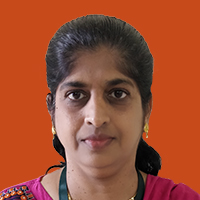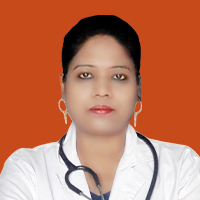

Successful Treatments
Clinics
Doctors
What is Dandruff?
Excessive shedding of dead skin from the scalp is known as Dandruff. Usually, skin cells die and flake off in a month, so a small amount of flaking is considered normal. But only if it flakes off in a month, while in those suffering from Dandruff, this happens every 2-7 days. Apart from being a physical condition, dandruff is also associated with social and self-esteem issues in many individuals as it impacts appearance. Don’t worry! With proper care and Dandruff treatment, you can get permanent relief from the problem.
In minor cases, dandruff treatment at home can be effective; however, if there is an underlying cause behind it, then a root-cause treatment that is personalised for your body type and existing health conditions is the right way to go.
Symptoms
Flaking
Flaking: The most telling sign when dandruff is present is the accumulation of white and yellow flakes on the scalp, in the hair and especially on the shoulders.
Itching
Itching: There may be some itching in the scalp, which may sometimes get worse in dry conditions.
Dry or Greasy Scalp
Dry or Greasy Scalp: Depending upon the type, the scalp can be really flaky or really oily.
Redness
Redness: In certain areas, the scalp may become red or swollen.
Sensitivity
Sensitivity: It may feel like that the affected areas are sensitive or tender.
Types of Dandruff
There can be multiple varieties of dandruff, each with some unique characteristics like:
- Dry Skin Dandruff: Most common in winters, this kind of dandruff is brought about by a lack of moisture in the scalp, which makes the skin shed in small white flakes.
- Oily Scalp Dandruff: This type of dandruff appears as yellow, greasy, and scaly patches that develop when scalp greasiness, dirt and dead cells combine.
- Fungal Dandruff (Seborrheic Dermatitis): As a result of the excessive growth of Malassezia fungus, this type triggers an adverse reaction that consists of inflammatory lesions, irritation, and big oily flakes. It does not only limit itself to the scalp but often invades other parts of the body such as the eyebrows and the sides of the nose which tend to have more oil.
- Product Build-Up Dandruff: Some individuals are addicted to using hair gel products, hairspray or conditioners. The scalp tends to suffer from product build-up which may cause dandruff-like issues in them.
- Scalp Psoriasis: This type of dandruff is manifested in more inflamed red patches with silvery scales and can be extremely irritating. The treatment of such a form of dandruff is usually more serious than that of other forms.
What Causes Dandruff?
- Seborrheic Dermatitis: A condition where the scalp becomes oily, irritated, and scaly.
- Malassezia Fungus: This naturally occurring fungus feeds on oils on the scalp. An overgrowth can lead to dandruff.
- Dry Skin: Especially common in winter, dry skin can lead to flaky skin.
- Sensitivity to Hair Products: Usage of some harsh shampoos, conditioners, or hair treatments can irritate the scalp, leading to dandruff.
- Poor Diet and Stress: Nutritional deficiencies and stress are also big reasons for dandruff.
According to Ayurveda, dandruff is largely associated with Vata and Kapha dosha imbalance, especially vitiated Kapha dosha. A bald patch with loose, flaky skin indicates excess Vata, while greasy bald patches or sticky bald patches with yellow colored flakes suggest too much Kapha. Poor diet, improper hair care, and lack of hygiene can exacerbate these doshas, leading to dandruff and other hair issues.
Risks & Complications
Though dandruff itself is usually not harmful but if left untreated, it can lead to complications:
- Infection: While scratching the scalp, the skin on the scalp will likely get ruptured, which in turn leads to an infection that can be serious.
- Hair Loss: Constantly having dandruff and its discomfort would eventually cause hair roots to be weakened, increasing hair loss.
- Seborrheic Dermatitis: More serious dandruff could lead to chronic dermatitis known as seborrheic dermatitis, which extends to more parts of the body.
- Social and Emotional Impact: Visible flakes can lead to embarrassment, anxiety, and reduced self-esteem.
When to See a Doctor?
In most cases, dandruff is treatable with herbal or natural remedies for dandruff and proper maintenance of the hair. But you should consult an Ayurvedic practitioner if:
- The dandruff aggravates and does not go away for long periods of time.
- There is too much scratching or redness.
- You have bald spots or are losing hair.
- There are no results from dandruff treatment at home.
- The condition extends beyond the scalp to areas like eyebrows or ears.
Ayurvedic Treatment for Dandruff
According to Ayurveda, dandruff, which stems from dosha imbalance, is manageable in many ways. Here’s how:
Herbal Remedies
The Ayurvedic herbs Amalaki, Bhringaraja, and Neem are frequently employed because of their antifungal and antibacterial properties. Neem oil in particular is used to treat fungi, while Amla nourishes the scalp and strengthens hair follicles.
Diet and Lifestyle Adjustments
Ayurveda focuses on regulating a balanced diet that is beneficial to the Vata and Kapha doshas. Including warm, moist foods, reducing the intake of processed and spicy foods, and drinking plenty of water can help. A regular hair care routine and practicing stress-relieving exercises, including yoga and meditation, are strongly suggested as well.
Oil Massage (Abhyanga)
With the use of warm herbal oils such as coconut or sesame, which are mixed with medicinal herbs like aloe vera, the scalp is hydrated and prevented from excess dryness. A soothing massage of the scalp is beneficial in increasing blood circulation to that area, thus facilitating hair growth as well as maintaining doshic balance.
Panchakarma Therapies
Dandruff treatment in ayurveda involves basic detox procedures such as Shirodhara (which involves pouring warm oil on the forehead) and Nasya, (medicated oil is delivered through the nose) help in combating dandruff from the root cause.
Ayurvedic Shampoos and Hair Packs
The Ayurvedic shampoos containing herbal ingredients like Aloe Vera, Tea Tree oil, and Hibiscus are recommended for scalp health. A hair pack made of fenugreek seeds, yogurt and lemon juice is also beneficial.
Jiva’s Evidence-Based Treatment Process
Nadi Pariksha
Starting with Nadi Pariksha, Jiva's certified Ayurvedic doctors use this traditional pulse diagnosis to detect imbalances and assess organ health, which is crucial for diagnosing Dandruff accurately.
Prakriti Analysis
Understanding your unique physical and psychological patterns allows us to tailor a Dandruff treatment plan that not only addresses symptoms but also aligns with your inherent constitution for lasting health.
Samprapti Ghatak (Pathogenesis)
Our practitioners investigate the progression of dandruff by examining dietary habits, lifestyle, and mental health factors. This thorough analysis helps identify specific triggers that need to be addressed for targeted, individualised treatment.
Chikitsa Sutra - Personalised Treatment Plan
We then create a detailed Dandruff treatment plan, which consists of diet modifications, lifestyle adjustments, herbal medications, and specific therapies that aim to restore dosha balance and enhance hair health.
Continuous Monitoring & Amendments
Continuous tracking of treatment effectiveness allows us to make necessary adjustments, ensuring that you achieve the best results from your personalised and Ayurvedic Treatment for Dandruff with Jiva's ongoing support.
FAQs
While it can be managed effectively with consistent care and lifestyle changes, factors like genetics and environmental triggers may cause it to reoccur.
Foods high in sugar, processed foods, and dairy can sometimes exacerbate dandruff. A balanced diet rich in vitamins and minerals is advisable.
Yes, severe dandruff can weaken hair follicles, leading to hair fall over time.
No, dandruff is not contagious and cannot be spread from person to person.
Stress can worsen dandruff by triggering or aggravating scalp conditions due to hormonal changes and weakened immunity.
Persistent dandruff can contribute to conditions like seborrheic dermatitis or even eczema on the scalp.
No, oiling with the right type of oils (like Neem or Coconut) can actually help in managing dandruff by keeping the scalp moisturized.
Washing hair 2-3 times a week with a mild herbal shampoo is recommended to keep the scalp clean and flake-free.
Maintaining a balanced diet, managing stress, keeping the scalp clean, and using gentle hair care products can significantly help in controlling dandruff.
Top Ayurveda Doctors
Our Happy Patients
Blogs
- Get rid of dandruff with these simple tips
- How to Treat Dandruff Effectively With Ayurveda
- Top 3 Ayurvedic Hair Oil For a Dandruff-free Scalp and Hair
- 5 Best Ways to Get Rid of Dandruff
- Can Dandruff Cause Hair Fall?
- Hair Care routine to control dandruff
- Ayurvedic Remedies for Hair Fall
- Ayurvedic Hair Growth Secrets Revealed
Home Remedies
- रूखे और बेजान बालों का आयुर्वेदिक इलाज और मुफ़्त परामर्श
- पिगमेंटेशन का इलाज - घरेलू नुस्खे और मुफ़्त परामर्श
- फंगल इंफेक्शन का इलाज - घरेलू नुस्खे और मुफ़्त परामर्श
- चेहरे की टैनिंग हटाने के घरेलू उपाय - मुफ़्त परामर्श
- Scalp की खुजली का आयुर्वेदिक इलाज - मुफ़्त परामर्श
- क्या आपकी त्वचा बेजान हो गई है? ये आयुर्वेदिक नुस्खे देंगे नैचुरल ग्लो
- झड़ते बालों से परेशान? ये आयुर्वेदिक नुस्खे देंगे घने और मजबूत बाल
- पिंपल्स से छुटकारा पाना मुश्किल लग रहा है? आज़माएं ये असरदार घरेलू नुस्खे!
- क्या आप जानते हैं? इन देसी नुस्खों से डार्क सर्कल्स गायब हो सकते हैं
- डैंड्रफ का जड़ से इलाज – घर पर आजमाएं ये आसान नुस्खे
- Home Remedies for Open Pores
- Home Remedies for Glowing Skin
- Home Remedies For Itchy Scalp
- Home Remedies for Hair Fall
- Home Remedies for Dry Hair
- Home Remedies for Black Spots on Face
- Home Remedies for Hair Loss
- Home Remedies for Pigmentation
- Home Remedies for Face Tan
- Home Remedies for Fungal Infections
- Home Remedies for Dandruff
- Home Remedies for Pimples
- Home Remedies for Dark Circles
Related Disease
- Ayurvedic Treatment for Vitiligo
- Ayurvedic Treatment for Urticaria Hives
- Psoriasis
- Ayurvedic Treatment for Hair loss and Regrowth
- Ayurvedic Treatment for Skin allergy
- Ayurvedic Treatment For Dandruff
- Ayurvedic Treatment for ringworm
- Ayurvedic Treatment for Eczema
- Ayurvedic Treatment for Psoriasis
- Ayurvedic Treatment for Acanthosis Nigricans
- Ayurvedic Treatment for Alopecia Areata
- Ayurvedic Treatment for Chicken Pox
- Ayurvedic Treatment for Folliculitis
- Ayurvedic Treatment for Athlete’s Foot
- Ayurvedic Treatment for Pityriasis Rosea
- Ayurvedic Treatment for Pemphigus Vulgaris
- Ayurvedic Treatment for Phlebitis
- Ayurvedic Treatment for Angioedema
- Get Ayurvedic Treatment For Impetigo
- Lichen Planus Treatment in Ayurveda
- Ayurvedic Treatment for Carbuncle
- Ayurvedic Treatment for Cellulitis
- Ayurvedic Treatment for Shingles
- Ayurvedic Treatment for Seborrheic Dermatitis
- Ayurvedic Treatment for Atopic Dermatitis
- Ayurvedic Treatment for Dermatitis
- Get Ayurvedic Treatment for Lipoma
- Ayurvedic Treatment for Keloids
- Ayurvedic Treatment For Xanthelasma
- Ayurvedic Treatment for Scabis
- Ayurvedic Treatment For Warts
- Ayurvedic Treatment For Dark Circles
- Ayurvedic Treatment For Hyperpigmentation
- Ayurvedic Treatment for Glowing Skin
- Ayurvedic Treatment For Fungal Infection
- Get Ayurvedic Treatment for Rosacea
- Get Ayurvedic Treatment for Contact Dermatitis
- Ayurvedic Treatment for Acne
- Ayurvedic Treatment for Leprosy
Latest Blogs
- क्या बार-बार एंटीहिस्टामिन लेने पर भी Hives वापस आ जाते हैं?आयुर्वेद में इसके मूल कारण जानें
- क्या परफ्यूम, साबुन या धूल के संपर्क में आते ही फौरन दाने उभर जाते हैं? Urticaria में ट्रिगर्स आयुर्वेदिक दृष्टि से समझें
- क्या रात के समय खुजली और दाने अधिक बढ़ जाना Urticaria की प्रकृति दिखाता है?आयुर्वेदिक दृष्टिकोण देखें
- क्या तनाव या घबराहट बढ़ते ही Hives flare-up शुरू हो जाता है? मन-पित्त संबंध आयुर्वेद की नज़र से समझें
- क्या अचानक चेहरे, होंठ या आँखों के आसपास सूजन आना Angioedema या Urticaria का लक्षण है? – आयुर्वेदिक व्याख्या
- क्या Delivery के बाद महिलाओं में Fissure ज़्यादा देखा जाता है? आयुर्वेद बताता है कारण और देखभाल
- क्या गुदा के आसपास खिंचाव, जलन और सूजन महसूस होना Fissure की प्रगति दर्शाता है?
- क्या मल त्याग के दौरान हल्का खून आना हमेशा Piles नहीं—Fissure भी हो सकता है?
- क्या गुदा के पास हल्की दरार या चमड़ी कटना Fissure का संकेत हो सकता है?
- क्या बार-बार सूखी और कड़ी स्टूल Anal Fissure को और खराब करती है?
- क्या लंबे समय तक कब्ज़ रहने से Fissure बार-बार दोहराता है? आयुर्वेद में इसके कारण जानें
- क्या धूप, ठंड या पानी लगते ही त्वचा पर चकत्ते उभरना Urticaria की ओर इशारा करता है? आयुर्वेदिक संकेत देखें
- क्या कुछ ही मिनटों में दाने फैल जाना Hives का क्लासिक पैटर्न है? आयुर्वेद की नज़र से कारण जानें
- क्या त्वचा पर अचानक उभरने वाले लाल उभरे हुए दाने Urticaria का संकेत हैं? आयुर्वेदिक दृष्टि से समझें
- Struggling With Leg Pain for Years? Ayurveda’s Panchakarma Offers Real Freedom
- From Grief to Healing: How a 75-Year-Old Found Relief from Osteoarthritis and BP Issues in Just 7 Days
- Surgery के बाद कमज़ोरी, Dopamine कम और Immunity गिर गई थी—Ayurveda ने कैसे फिर से ताकत दी
- 85 से 115 KG तक अचानक बढ़ा वज़न—Thyroid, Fatty Liver और Kidney Stone में Ayurveda ने कैसे संभाली हालत
- PCOD Success Story: जब दवाइयाँ काम न करें, Ayurveda दिखाता है असली रास्ता
- लंबे समय तक बैठकर काम करने से बढ़ा Lower Back Pain—10 दिन के Panchakarma ने कैसे दिया आराम
Ayurvedic Doctor In Top Cities
- Ayurvedic Doctors in Bangalore
- Ayurvedic Doctors in Pune
- Ayurvedic Doctors in Delhi
- Ayurvedic Doctors in Hyderabad
- Ayurvedic Doctors in Indore
- Ayurvedic Doctors in Mumbai
- Ayurvedic Doctors in Lucknow
- Ayurvedic Doctors in Kolkata
- Ayurvedic Doctors in Patna
- Ayurvedic Doctors in Vadodara
- Ayurvedic Doctors in Ahmedabad
- Ayurvedic Doctors in Chandigarh
- Ayurvedic Doctors in Gurugaon
- Ayurvedic Doctors in Jaipur
- Ayurvedic Doctors in Kanpur
- Ayurvedic Doctors in Noida
- Ayurvedic Doctors in Ranchi
- Ayurvedic Doctors in Bhopal
- Ayurvedic Doctors in Ludhiana
- Ayurvedic Doctors in Dehradun









































